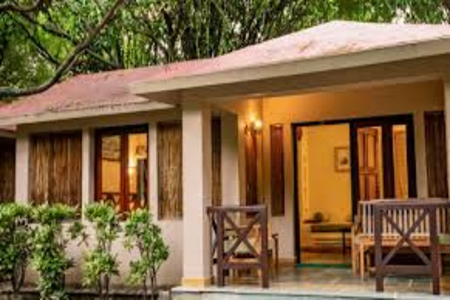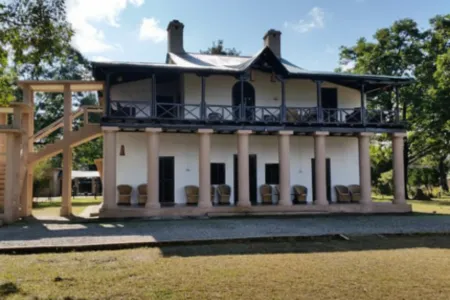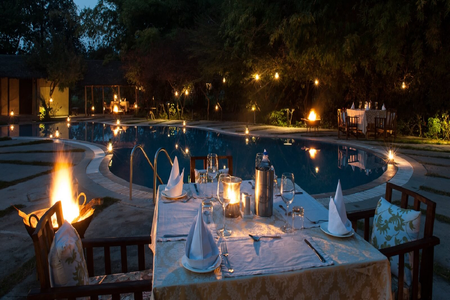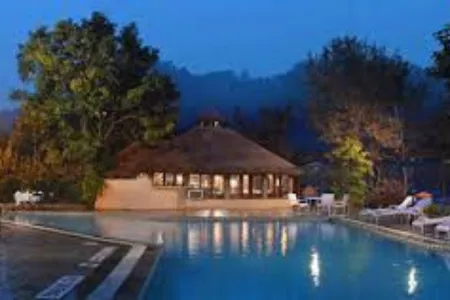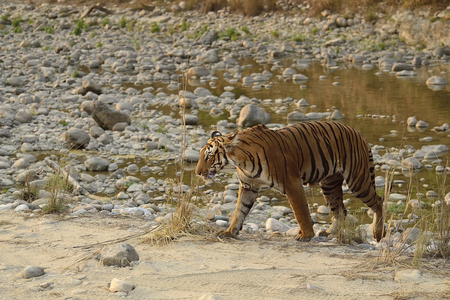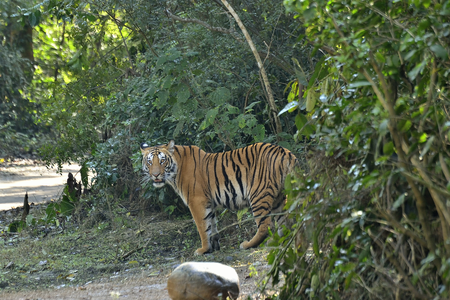Jim Corbett National Park / Jim Corbett Tiger Reserve is the oldest national park in India and was established in 1936 as Hailey National Park to protect the endangered royal Bengal tiger. It is located in Nainital district and Pauri Garhwal district of Uttarakhand and was renamed after Jim Corbett, a well-known hunter and naturalist. Jim Corbett was the first to be established under the Project Tiger initiative in 1973. Today the park is spread over an area of 1288 sq km with a core area of 821.99 sq km and a buffer area of 466.32 sq km.
The park has sub-Himalayan belt geographical and ecological characteristics. An ecotourism destination, it contains 488 different species of plants and a diverse variety of fauna. The park area comprises hills, marshy depressions, riverine belts, grasslands and a large lake. It is among the few tiger reserves in India that allows overnight stays in the lap of the wilderness. Nature watch and wildlife viewing in the park is done in an open jeep. Sheltering a healthy population of tigers and rare species like otters and the endemic Gharials (fish-eating crocodiles), the national park is one of the most sought-after destinations for wildlife buffs.
Despite a decent population of 260 plus Tigers in the Tiger Reserve, tigers are elusive here compared to some of the other parks in the country but in recent years the sightings have vastly improved especially in the Dhikala zone. Leopards are the second largest predator in the reserve and elephants are the dominant mammals here, even they are dwarfed by the overwhelming landscape. The lesser predators are the jungle cat, leopard cat, the rare fishing cat, golden jackal and yellow-throated marten. Herbivores found here are spotted deer, sambar, hog deer and muntjac, while on steep slopes you’ll find the elusive goat antelope – goral. The Ramganga River is home to the endemic gharial (fish-eating crocodile), muggers (marsh crocodiles), common otters and the legendary sportfish – Golden Mahseer.
A virtual haven for birders visiting North India, Corbett hosts over 500 species of resident and migratory birds. The rich bird life includes species like Pallas’s and lesser fish eagle, brown and tawny fish owl, collared falconet, Hodgson’s bushchat, Nepal wren babbler, slaty-headed parakeet, pin-tailed green pigeon, great slaty woodpecker, long-tailed broadbill, black-chinned babbler, crested kingfisher, great hornbill, wallcreeper, brown dipper, plumbeous and white-capped water redstarts, slaty-backed and spotted forktails, small and rufous-bellied niltava. Of the 69 species of Raptors found in India, 49 can be seen in Jim Corbett.
Dhikala Zone of Jim Corbett National Park
The Dhikala Zone of Jim Corbett National Park is renowned for its stunning landscapes and rich biodiversity, making it a premier destination for wildlife safaris in India. Spanning diverse terrains, including grasslands, dense forests, and riverine belts, Dhikala offers visitors the chance to spot majestic Bengal tigers, elephants, leopards, and various deer species.
With its enchanting scenery and abundant wildlife, Dhikala promises an unforgettable safari experience, perfect for nature lovers and adventure seekers alike. Whether you are photographing a tiger in its natural habitat or enjoying the serenity of the forest, a safari in the Dhikala Zone offers a unique and immersive wildlife experience.
The jeep safari option is available only for those with a night stay permit in one of the Forest Rest Houses or FRH. These are government-managed accommodations in the heart of the forest. The accommodation is basic as the idea is to be least intrusive yet comfortable. Dhikala, Sarpdulli, Gairal, Sultan and Khinnanauli are some of the popular guest houses available for a maximum of 3 nights in one go.
Safaris at Jim Corbett National Park
Regular Jeep Safaris: Regular Jeep Safaris are conducted twice daily- morning and evening across the Jhirna, Bijrani, Dhela, Sitabani and Durgadevi Zones. The morning safari starts around 6 AM (depending on the season) and lasts 3.00- 3.30 hours. The duration of the evening safari is 3.00- 3.30 hours again depending on sunset.
Safari in Dhikala Zone of Jim Corbett: Safari options in the Dhikala Zone include jeep and canter safaris, allowing guests to explore the area comfortably and safely. These guided tours provide invaluable insights into the park’s ecology and wildlife behaviour. The best time to visit is from November to June when wildlife sightings are most frequent. The jeep safari option is available only for those with a night stay permit in one of the Forest Rest Houses or FRH. Those staying outside in resorts can opt for Cantor ( open bus ride) which is offered twice a day, the duration of each ride is approximately 5 hours.

